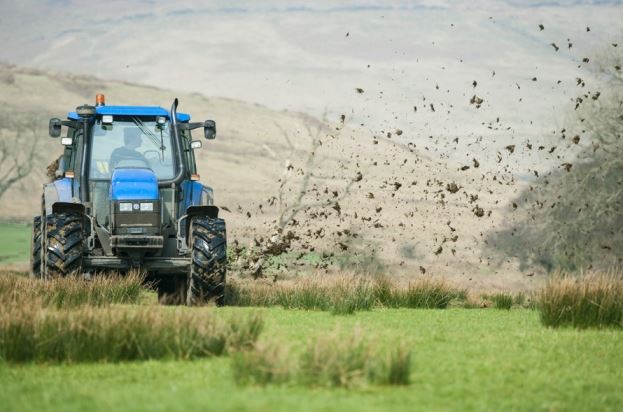



Antibiotic Free Cows Contribute to Antibiotic Resistance
Manure from cows fed no antibiotics is supporting soil bacteria growth and leading to antimicrobial resistance, puzzling scientists.The mechanism at work is not yet clear, but the finding — published on 6 October in Proceedings of the National Academy of Sciences1 — suggests a complex link between antibiotic use in agriculture and resistance in human pathogens.
Many bacteria in the environment naturally carry antibiotic-resistance genes, probably as defence against the antibiotics produced by some soil fungi and bacteria, says the journal Nature.
Laboratory-made versions of these antibiotics are used to treat infection in humans and animals, and to promote growth in livestock.
Pseudomonas bacteria in soil benefit from manure fertilizer elements
According to Nature, because manure itself is known to change the composition of bacterial communities in soil, a team led by microbiologist Jo Handelsman, then at Yale University in New Haven, Connecticut, decided to examine whether it also affects drug resistance.
The team treated soil samples with either a nitrogen-based fertilizer or with manure from cows that had never been fed antibiotics.
The researchers examined soil bacteria sampled before and after the treatment, searching for genes that encode enzymes called β-lactamases, which break down a class of antibiotic that includes penicillin.
Two weeks after treatment, the soil spread with manure contained significantly higher numbers of bacteria producing β-lactamases than did soil treated with only the nitrogen-based fertilizer.
By tracing genetic markers in the resistant bacteria, the researchers found that these bacteria came from the soil rather than from the manure, suggesting that the manure treatment had helped these natural bacteria to grow by feeding them or eliminating their competitors.
The manure was particularly beneficial for Pseudomonas species, which are common in human infections.
Human Interference
But it is unclear how manure creates a better environment for antibiotic-resistant bacteria.
Handelsman — now associate director for science at the White House Office of Science and Technology Policy — and her colleagues suggest that certain nutrients or heavy metals in the manure could be responsible, because bacteria with β-lactamases are also more likely to be resistant to metals2.
The authors say that they plan to test this in the future. Gautam Dantas, a microbiologist at Washington University in St. Louis, Missouri, says that the study is very well done.
“It lends credence to the idea that almost any kind of [human] activity needs to be considered when considering natural ecosystems and clinical problems,” he says.
The extent to which overuse of antibiotics in farm animals contributes to antibiotic resistance in clinics is still controversial — a US government report published in September concluded that more research should be done on the link, but stopped short of recommending a ban on using medically important antibiotics for farm animals.
But by dumping antibiotics into soil whose bacterial make-up has already been altered by manure, says Dantas, “you're guaranteed 100 per cent to exacerbate problems with resistance”. He adds that the latest work is the type of research that says “we really should be very, very careful about antibiotic use in agriculture”.
The study also suggests taking a closer look at organic agriculture techniques that use manure instead of nitrogen-based fertilizer.
“Perhaps we've been enriching inadvertently for bugs that could eventually jump across agriculture to hospitals,” says Dantas.
“Before we say anything about ‘nitrogen treatment is terrible and organic is wonderful’, we need to see what the downsides are.”
References 1. Udikovic-Kolic, N. et al. Proc. Natl Acad. Sci. USA http://dx.doi.org/10.1073/pnas.1409836111 (2014).2. Knapp, C. W. et al. PLoS ONE 6, e27300 (2011). Article


